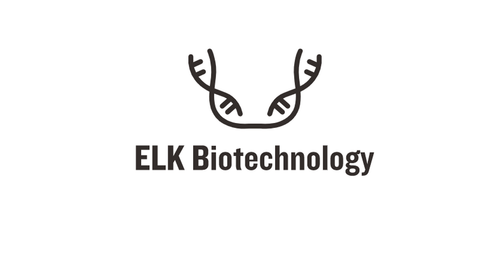Product Description
Human Synaptonemal complex protein 3 (SYCP3) ELISA Kit | AE16039HU | Abebio
Species Reactivity: Human (Homo sapiens)
Abbreviation: SYCP3
Alternative Name: COR1; MGC71888; SCP3; OTTHUMP00000196389|OTTHUMP00000196390
Application: ELISA
Range: 15.6-1000 pg/mL
Sensitivity: 5.8 pg/mL
Intra-Assay: ≤5.7%
Inter-Assay: ≤10.6%
Recovery: 1, 08
Sample Type: Serum, Plasma, Other biological fluids
Detection Method: Sandwich
Analysis Method : Quantitive
Test Principale: This assay employs a two-site sandwich ELISA to quantitate SYCP3 in samples. An antibody specific for SYCP3 has been pre-coated onto a microplate. Standards and samples are pipetted into the wells and anySYCP3 present is bound by the immobilized antibody. After removing any unbound substances, a biotin-conjugated antibody specific for SYCP3 is added to the wells. After washing, Streptavidin conjugated Horseradish Peroxidase (HRP) is added to the wells. Following a wash to remove any unbound avidin-enzyme reagent, a substrate solution is added to the wells and color develops in proportion to the amount of SYCP3 bound in the initial step. The color development is stopped and the intensity of the color is measured.
Product Overview: SYCP3 encodes an essential structural component of the synaptonemal complex. This complex is involved in synapsis, recombination and segregation of meiotic chromosomes. Mutations in this gene are associated with azoospermia in males and susceptibility to pregnancy loss in females. Alternate splicing results in multiple transcript variants that encode the same protein. Three meiosis-specific components of the SC have been characterized in mammals, SC protein-1 (SYCP1), SYCP2, and SYCP3. SYCP3 has a molecular mass of 30 kD and a C-terminal coiled-coil domain that has been shown to promote homotypic interactions in vitro; the SYCP3 gene has been cloned in mouse, rat, and hamster.
Stability: The stability of ELISA kit is determined by the loss rate of activity. The loss rate of this kit is less than 5% within the expiration date under appropriate storage condition. The loss rate was determined by accelerated thermal degradation test. Keep the kit at 37°C for 4 and 7 days, and compare O.D.values of the kit kept at 37°C with that of at recommended temperature. (referring from China Biological Products Standard, which was calculated by the Arrhenius equation. For ELISA kit, 4 days storage at 37°C can be considered as 6 months at 2 - 8°C, which means 7 days at 37°C equaling 12 months at 2 - 8°C) .
 Euro
Euro
 USD
USD
 British Pound
British Pound
 NULL
NULL








